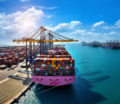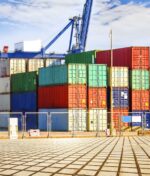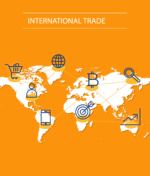
- April 24, 2024
- by admin
- Consulting
Engaging in international trade is a sustainability element in the development of commerce and job creation, particularly for African nations and other less developed nations. Despite commendable achievements over the last years in transforming regional blocks into trade facilitators, there remains a need for deeper self-evaluation of individual countries’ potential to trade and their consistent ability to consistently meet market demands.
In this article, I further argue that the true catalysts for success lie in commitment, focus, resilience, and persistence in the efforts initiated by key actors as mentioned in my previous article here; https://shorturl.at/sABPV
To embark on this transformative journey, a thorough study of what each African nation aspires to bring to the global stage is imperative. Accuracy in identifying unique offerings and understanding production capacity is paramount, emphasizing the need for sustainability over the long term. It goes beyond merely having a product; it’s about the ability to consistently produce and deliver the required quantities and qualities. Collaboration on production possibilities becomes crucial to aggregate numbers and avoid the pitfalls of overselling or underselling. The commitment to understanding and sustaining production capacity is key to nurturing a thriving export trade.
I however want to assume that the element of production is straightforward and probably the easier part, and focus on exploring the crucial role and presence of Foreign Trade Representatives (FTRs) in the target markets. Whether public or private officials, FTRs play a significant role in gathering market intelligence and empowering potential sellers with insights to prepare effectively. Their proactive role, such as initiating promotional activities and arranging meetings for sellers, contributes to a country’s ability to enter, grow, and/or expand in a foreign market. FTRs serve as a bridge, overcoming communication challenges, navigating disputes, and facilitating market entry, growth, and expansion.
In essence, FTRs become the “Quarter pin” (cotter pin) in the complex web of international trade. They are not merely conduits of information but catalysts for effective market penetration. By harnessing their capabilities, nations can proactively address challenges, enhance communication, and pave the way for sustainable and mutually beneficial trade relationships. These FTRs are normally culturally aware and have taken time to understand the value system where they are, with good communication, diplomacy, legal, negotiation, networking, research, and sales and marketing skills among others.
FTRs act as strategic enablers, aligning international trade efforts with the goals and priorities of a country and the complementarities of economic blocks. Going beyond transactional activities, they provide critical input for policymakers and help shape a country’s international trade agenda in line with its economic and developmental plans.
The journey towards successful international trade is not marked by a single magic bullet but by a constellation of strategic efforts. Commitment, focus, and resilience serve as the bedrock, while the role of FTRs emerges as a key catalyst. Through collaborative efforts and a keen understanding of market dynamics, African nations can position themselves for a prosperous future in the global trade landscape.













